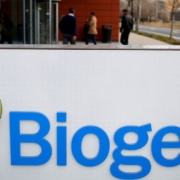Talkatoo, creators of the easy-to-use, efficient and platform-agnostic dictation software for animal health professionals, announced the closing of a new, oversubscribed round of funding led by Klick Ventures.
Biogen Inc. is providing the company’s controversial and expensive new Alzheimer’s drug free of charge for some patients amid slow claim reviews by Medicare, according to sources familiar with the situation, including a doctor treating patients with the drug.
Health Technology Special Feature: Not Always Created Equal
Artificial Intelligence, August 2021, Data, Data Analysis, Ethnicity, Health Technology, Healthcare Communications Agencies, Issue Archives, Marketing & Advertising, Med Ad News, New England Journal of Medicine, Patients, Race, Special Features, TransparencyData and AI scientists must strive to eliminate bias from anything that touches patient care.
The World Health Organization defines health technology as “the application of organized knowledge and skills in the form of devices, medicines, vaccines, procedures, and systems developed to solve a health problem and improve quality of lives.” While that’s true, it’s a pretty broad statement. In an era when we’re seeing rapid technological shifts in the way people measure, monitor, and think about their health, it’s worth focusing any discussion of health technology to a few key areas that best highlight some of the more exciting – and challenging – aspects of health technology development at this point in 2021.
Ashfield Health, a global healthcare marketing and communications network and part of UDG Healthcare, launched GRAVITYai, a global healthcare intelligence data platform. The data solution is designed to support pharma, life science, biotech and other healthcare partners to work faster, better and more efficiently across every stage of the product life cycle.
Cell and gene therapies (C>s) present opportunities to not only treat disease, but to restore function and improve disease management. Although the opportunities with C>s are continuing to expand, there is a widening gap between the potential of treatment advances and the patient experience. The industry is beginning to acknowledge the problems faced in one of healthcare’s most complex areas for patient experience, according to EmerGENE’s Nareda Mills (Global President Patient Solutions) and Ben Beckley (Global Lead).
In order for healthcare organizations to create healthier communities, they need insight into more than clinical patient information. They also need to see behavioral health data, which is a major indicator of risk and trends for their population. Having access to this information can feed into more effective preventative and community-based mental health services and treatments for patients.
The model for healthcare delivery and treatment was upended by the COVID-19 pandemic, as ordinary Americans have learned to take more control of their own care and treatment, harnessing a new class of technology tools that have given individuals unprecedented clout. But patients and healthcare providers still need to partner together for the best outcomes, according to Jim Weiss, founder and CEO of Real Chemistry.
For both patients and their healthcare providers (HCPs), the requirement that prior authorizations (PAs) be obtained from health insurers for many branded and specialty medications continues to act as a significant roadblock, according to David Fidler, senior director product innovation at ConnectiveRx.
Apple, Microsoft, Amazon, and Google/Alphabet are the first companies to reach market capitalization of over a trillion dollars, with no end in sight for continued exponential growth across the technology sector. At the core of their jaw-dropping success is a revolution in the customer experience, triggered by digital and empowered through data-driven personalization.






